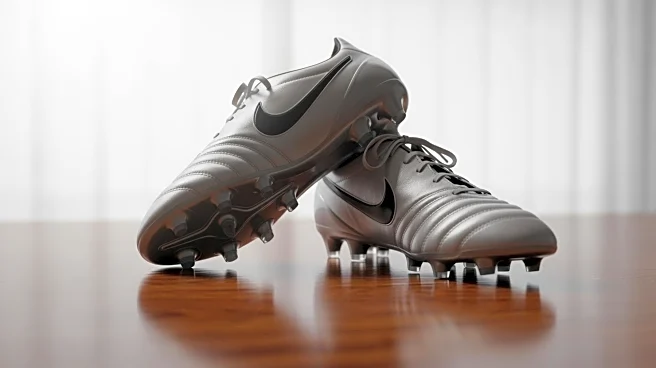What's Happening?
Wilfried Zaha has publicly responded to comments made by his former Crystal Palace teammate Jean-Philippe Mateta, who claimed that Zaha mocked his aspirations to play for the French national team. Mateta, who recently debuted for France, alleged that Zaha and
other teammates laughed at his ambitions during his time at Crystal Palace. Zaha refuted these claims in a social media video, expressing disappointment and labeling the accusations as 'disgusting.' He clarified that the conversation was light-hearted banter among friends and denied ever doubting Mateta's potential. The incident has reignited tensions between the two players, with Zaha questioning Mateta's motives for singling him out.
Why It's Important?
The exchange between Zaha and Mateta highlights the complexities of relationships within professional sports teams and the impact of public statements on personal reputations. Zaha's response underscores the challenges athletes face in maintaining friendships and navigating public perceptions. The incident reflects broader themes of ambition, rivalry, and the pressures of professional sports, where personal interactions can become public controversies. The situation may influence how athletes communicate and manage their public personas, affecting team dynamics and individual careers.
Beyond the Headlines
The controversy between Zaha and Mateta raises questions about the role of social media in amplifying personal disputes and the ethical considerations of publicizing private conversations. It highlights the potential for misunderstandings and the importance of context in interpreting statements. The incident may prompt discussions on the responsibilities of athletes as public figures and the impact of their words on fans and teammates. The situation also illustrates the cultural dimensions of sports, where national team aspirations can become points of contention among players from diverse backgrounds.















